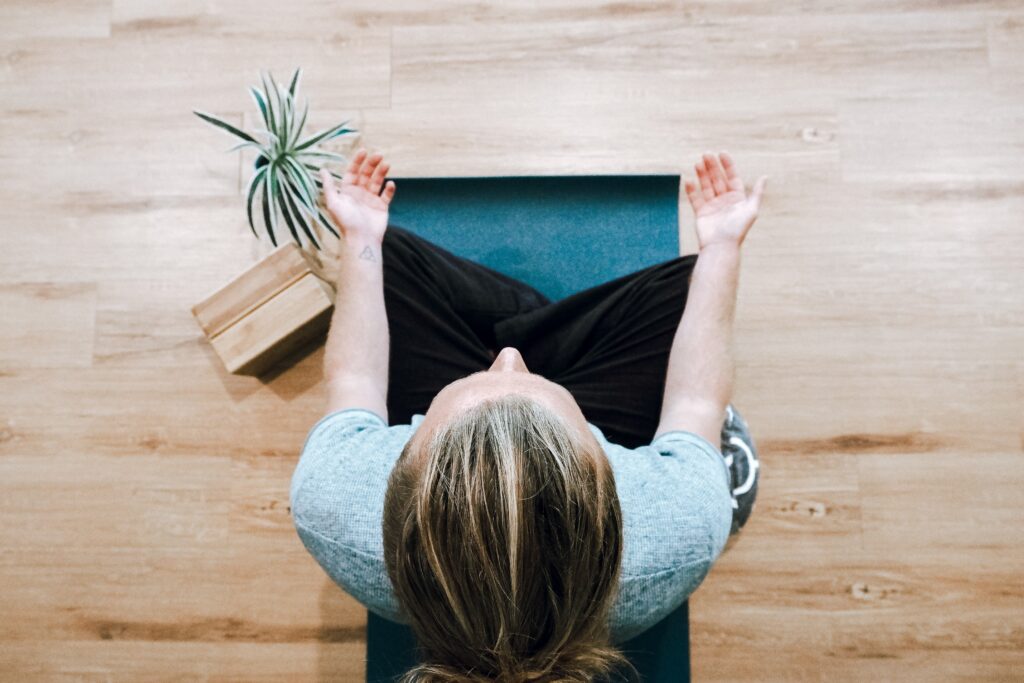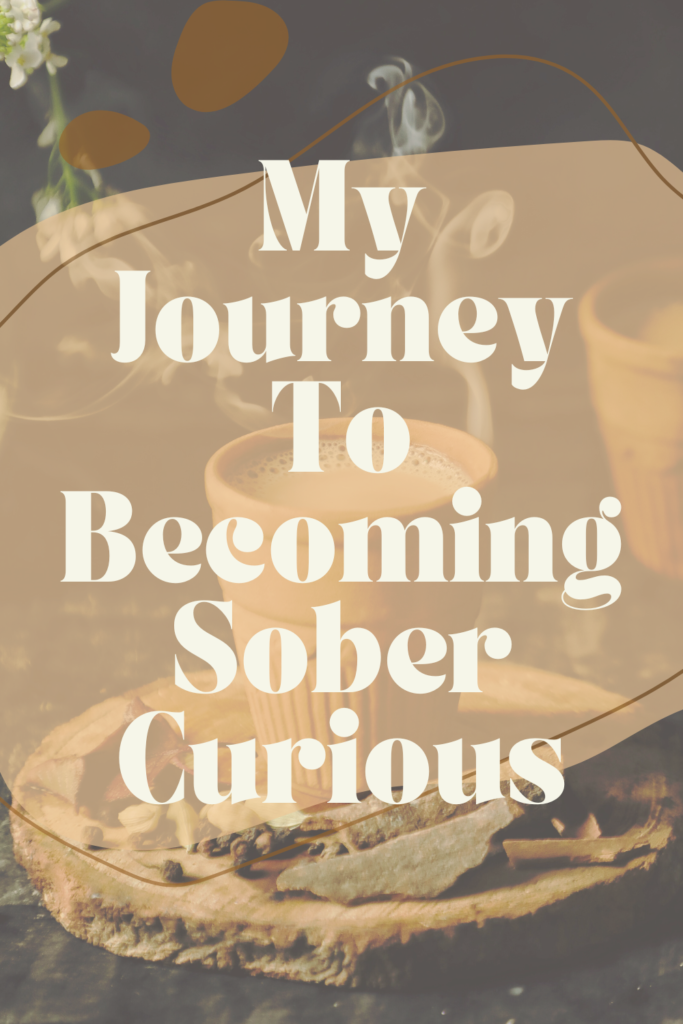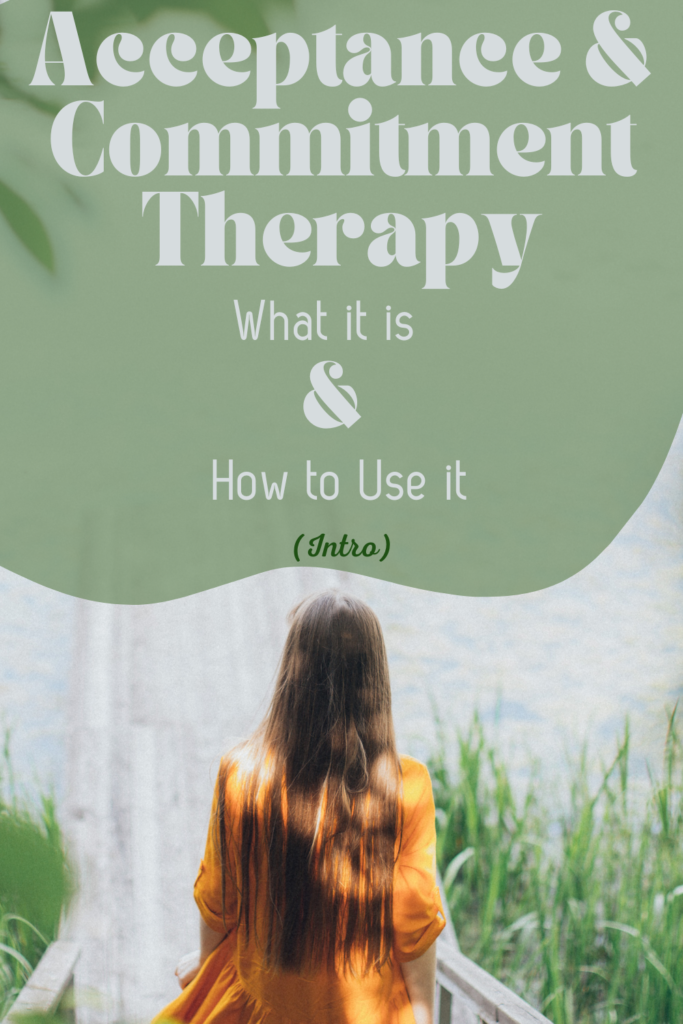Sharing is caring!
Practicing Meditation: Have you Tried it?
Do you feel like you can’t sit still long enough for meditation or that you don’t have a good place or time to do it? Or maybe you’ve tried it and you’ve experienced too many buzzing and lightning-fast thoughts in your head that keep you from “relaxing?”
Well, I wrote this post to act as a wealth of information on the ways that meditation can literally change your brain! I also want to provide some information on different types of meditation in the hopes that you feel as though maybe it can fit into your life and benefit you and what you want from your self-care routine. I’ll give you a very short back story on my relationship with meditation.
Personal Share on Practicing Meditation
Meditation and its healing powers have been on my radar for a while. Since college, when I began to practice yoga, I heard about how good meditation is for you. Regardless of this info I never tried it. I just kept on doing yoga exercising as a form of self-care but continued to “deal with” my stress and emotions by drinking and smoking.
Meditation was unattractive to me because I couldn’t sit still that long and even If I tried meditation (rarely and randomly) my thoughts never “allowed” me to relax. I couldn’t even lay still during savasana at the end of yoga for 3 minutes.
By the time I was done having my babies, I was too determined to get lean and strong, so I dropped yoga, and with that any form of meditation I might have been doing, altogether because I didn’t feel that it was “doing” anything for my figure or strength.
Fast forward, I’m sober- curious and vehemently trying to figure out how to maintain stability with my mental health as I’m an entrepreneur/stay at home mom. I binge drink one day, after a year of drinking beautifully in moderation, and promise myself that I will find a way to maintain a regular sense of peace in my life, so that I don’t give into the urge to binge drink again.
Learn more about sober curious journey here.
Enter: Meditation. I begin to meditate 2 times a day for 10 minutes. Everything changes. I’m more patient, I’m slower with my reactions after being frustrated with my toddlers, and less intensely and frequently upset.
I also began doing yoga again. I didn’t commit to one full hour but I try to squeeze whatever amount I can into my life. I feel more flexible and in touch with my body and I feel as though it is an additional form of meditation too.
After giving this example of change in my own life I want to highlight what was likely happening for me when meditation entered my self-care or workout routine.
Practicing Meditation=Practicing Mindfulness
Mindfulness is such a huge buzzword right now!
Why you might ask? Let’s delve into that answer.
According to Oxford Languages mindfulness is “…a mental state achieved by focusing one’s awareness on the present moment, while calmly acknowledging and accepting one’s feelings, thoughts, and bodily sensations, used as a therapeutic technique.”
I read a quote from Eckhart Toll that really resonated with me:
“Stress is caused by being “here” but wanting to be “there.””
This is the biggest and most obvious truth in my eyes.
Some examples:
- You’re sick? You want to hurry up and get to the future and feel better and the wanting/struggling causes you stress.
- You’re waiting in line? You want it to be your turn so whatever you’re waiting in line for can be addressed. The waiting/struggling is causing you stress.
- Your newborn is crying in your ear? You want the baby to stop, which can only take place in the future. The wanting/struggling causes you stress.
Wanting/waiting/struggling is an active way of being and may cause cortisol levels (stress hormone) to rise. It can cause feelings of fight or flight.
But when you’re practicing mindfulness, you’re practicing acceptance and understanding of things that are happening in the present moment. Does this mean you don’t feel negative feelings in the present moment? Absolutely not. But it does mean that you stop struggling with these very natural and human feelings and that’s a layer of difficulty peeled away from your current state of emotion.
Acceptance and commitment therapy (ACT) has 6 core principles that is aimed at attaining psychological flexibility and practicing mindfulness is one of them. Want to learn more about ACT? Read my blog post on that right here.
How do you practice mindfulness? Meditation is the answer readers!
Meditation is the Answer to Being Mindful
Meditation Styles for All
Luckily, there are many different types of meditation too and these many different types can happen almost anywhere.
5 Different Types of Meditation
The top 5 most user-friendly types of meditation
I dubbed these the top 5 most user friendly just FYI! There are actually 9 different types of meditation according to healthline. If you want to learn more from this particular article you can find it here!
I chose these as friendly because I feel as though each of them can be done easily or they cater to the people that want to meditate but don’t love to stay still.
- Mindfulness meditation
- Is encouraged in acceptance & commitment therapy. There are several metaphors that help you to envision yourself as separate from your thoughts and able to be a “witness” to your thoughts instead of being carried away by them. Two that I like the most are envisioning yourself as the sky (never changing) and your thoughts, feelings or emotions as the weather. Weather changes and the sky doesn’t. The sky is strong an ever present while they weather changes regularly. Another metaphor that I personally use is I am sitting atop a building while my thoughts are below zooming past like traffic. I see the traffic but it can’t control me. Some cars are fast and angry, and some are calm and easy…just like my thoughts. Regardless I’m high above, not being disturbed by the traffic
- Focused meditation
- Focused meditation is a good meditation to choose for the can’t-stop-moving people. You can count beads on a necklace, listen to meditative music or count your breaths. It allows you to focus your thoughts on one action over and over again which calms the mind.
- Movement meditation
- Movement meditation is like focused meditation in the it’s good for the can’t-stop-moving people, but it involves movement of the whole body. Movements of the whole body that can become meditative are activities such as uninterrupted walking, yoga, tai chi or gardening. It’s the repetitiveness of the movement that counts.
- Progressive relaxation
- Progress relaxation can also be an easy type of meditation for the can’t-stop-moving people. This meditation is a practice of tensing certain parts of the body and then relaxing that same part of the body. This practice brings awareness to each part of your body.
- Visualization meditation
- This type of meditation requires the practitioner to visualize peaceful scenery or places that bring them relaxation like laying on a hammock beside a serene lake in cool air. You can also visualize hugging a loved one or accomplishing a goal. Visualizing anything that brings on the feel-good chemicals in your brain is a key part of this type of meditation.
How Meditation Changes your Brain for the Better
- Meditation leads to the strengthening of the pre-frontal cortex which is a part of the brain that is responsible for higher order thinking.
- It keeps your brain young!
- Starting in our 20s our brain begins to deteriorate. Meditation can help us maintain young brains. Studies have shown that the gray matter in senior citizens that have been practicing meditation for many years have the same gray matter as 20 somethings.
- Meditation strengthens our neural connections which leads to a plethora of benefits.
- Supports sustained focus
- Alleviates stress
- Reduces feelings of anxiety
- Meditation reduces the area of the brain that is responsible for fight-or-flight (the amygdala)
These changes are pricelessly beneficial and can be accomplished FOR FREE. I believe all of the evidence provided in this post should act as some hefty motivation to start practicing meditation, don’t you?
In Conclusion
In conclusion, I hope this post marries some information on what meditation does for your overall wellbeing. Just 10 minutes a day can make a HUGE difference in your mental and physical health.
Can you find 10 minutes in your day to drastically improve your mental and physical health? Which type of meditation do you feel will fit into your life the best?
I love hearing feedback from my readers! Please feel free to leave a comment on any thoughts that you might have meditation or on what posts you’d like to see pop up in my blog!
Until next time,
Kristi
Written by Kristi, September 7th, 2023
Sharing is caring!



This gives me something new to think about. I like to gaze out into the sky or water or some focal point and let the mind go blank. You have so many good life practices! Peace to you!
This gives me something new to think about. I like to gaze out into the sky or water or some focal point and let the mind go blank. You have so many good life practices! Peace to you!